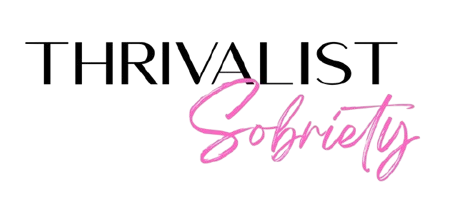
Embracing Dry July: Expectations and Strategies for Success
Taking a break from alcohol, regardless of your drinking habits, can be a transformative experience for anyone. Congratulations on committing to Dry July! If you’re feeling the need to step away from booze for a month, you might benefit from delving deeper into understanding your relationship with alcohol and making long-term changes. In this article, we’ll explore the concept of Dry July as an opportunity for personal growth and provide tips to navigate the challenges along the way.
Week One: You can grow through your cravings
During the initial week, you may experience alcohol withdrawals and cravings as your body detoxifies from this addictive substance. For help with this stage, consider using Thrivalist Craving Tools to move through cravings without succumbing to them. Each time you resist a craving, you’re retraining your mind to dissociate alcohol from relieving triggering emotions.
Additionally, taking a break from alcohol gives you the chance to confront and process underlying emotions. If you’ve been using alcohol as a coping mechanism, learning to sit with discomfort and exploring your feelings can be a transformative practice. Journaling and seeking support through coaching or therapy can greatly aid this process.
Moreover, expect some initial disruptions in your sleep patterns as your body adjusts to falling asleep without the sedative effects of alcohol. Over time, however, you’ll find yourself enjoying more restful and rejuvenating sleep. Establishing a new evening ritual that includes relaxation techniques like a hot bath, chamomile tea, or meditation can promote better sleep quality.
Week Two: Redefining Fun and Reaping Benefits
FOMO (Fear of Missing Out) may surface during the second week as you navigate social situations without alcohol. However, it’s important to challenge the deeply ingrained belief that alcohol is necessary for fun and enjoyment. By redefining what fun means to you and disconnecting alcohol from it, you can discover new ways to have a blast without negative consequences. Joining a supportive community like Thrivalist, experimenting with alcohol-free drinks, and engaging in activities that bring you genuine joy are effective strategies to combat FOMO.
One of the remarkable benefits of abstaining from alcohol is the positive impact on your physical appearance. Alcohol dehydrates the skin and affects its elasticity while also leading to facial redness and eye discolouration. By ditching alcohol, your skin becomes more hydrated, collagen levels are restored, and your eyes regain their natural sparkle. Staying hydrated and getting ample rest to facilitate the detoxification process and contribute to healthier-looking skin.
Additionally, going alcohol-free allows you to reclaim significant amounts of time that would have otherwise been spent drinking, being drunk, or recovering from hangovers. Embrace this newfound free time by pursuing long-awaited hobbies, joining clubs or groups, or even exploring entrepreneurial endeavours.
Week Three: Navigating Challenges and Reaping Rewards
During the third week, you may encounter moments of temptation and willpower fatigue. Your internal voice, sometimes referred to as the “wine witch,” might coax you into believing that you deserve a drink. Remember that perseverance pays off, and if you resist the urge, you’ll experience a tremendous sense of pride and personal growth. Counteract these moments by talking back to your “wine witch,” reaffirming your motivations aloud, and deepening your understanding of alcohol, addiction, and sobriety through educational resources like the Thrivalist Signature Sobriety Course.
As you continue on your alcohol-free journey, you’ll notice a remarkable boost in energy levels and overall well-being. Without the burden of alcohol’s effects, you’ll find yourself more productive and able to accomplish tasks with newfound vigour. Capitalize on this high-vibe energy by pursuing passion projects or exploring entrepreneurial aspirations.
Week Four: Celebrating Milestones and Embracing Sobriety
As you approach the end of your four-week journey, it’s time to reflect on the incredible achievements and benefits you’ve experienced by abstaining from alcohol. It’s worth celebrating the positive changes you’ve made. You would have saved some money, your sleep quality would be improving, and you may even have a renewed sense of well-being.
By completing the four-week period without alcohol, you’ve granted your body, mind, and soul a much-needed respite. As a result, you’ll likely find yourself in a clearer state of mind, feeling significantly better overall. These positive changes reflect the transformative power of your commitment to sobriety. If you want to continue to feel amazing, why not consider extending your alcohol-free journey for another month to explore the positive effects on your well-being further?! To make longer-term changes to your relationship with alcohol, our Signature Sobriety Course is the perfect place to start. It’s an eight-week program designed to equip you with the tools and knowledge to change your relationship with alcohol long-term.

Post a comment